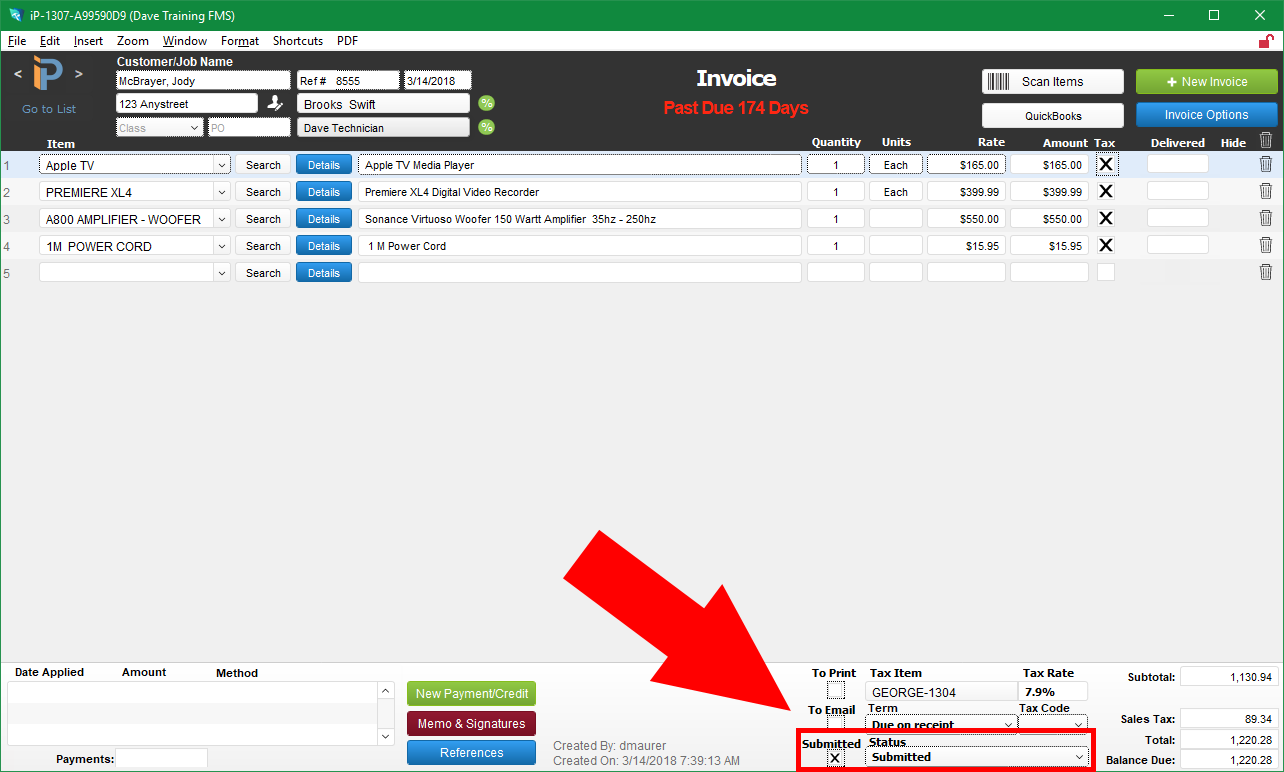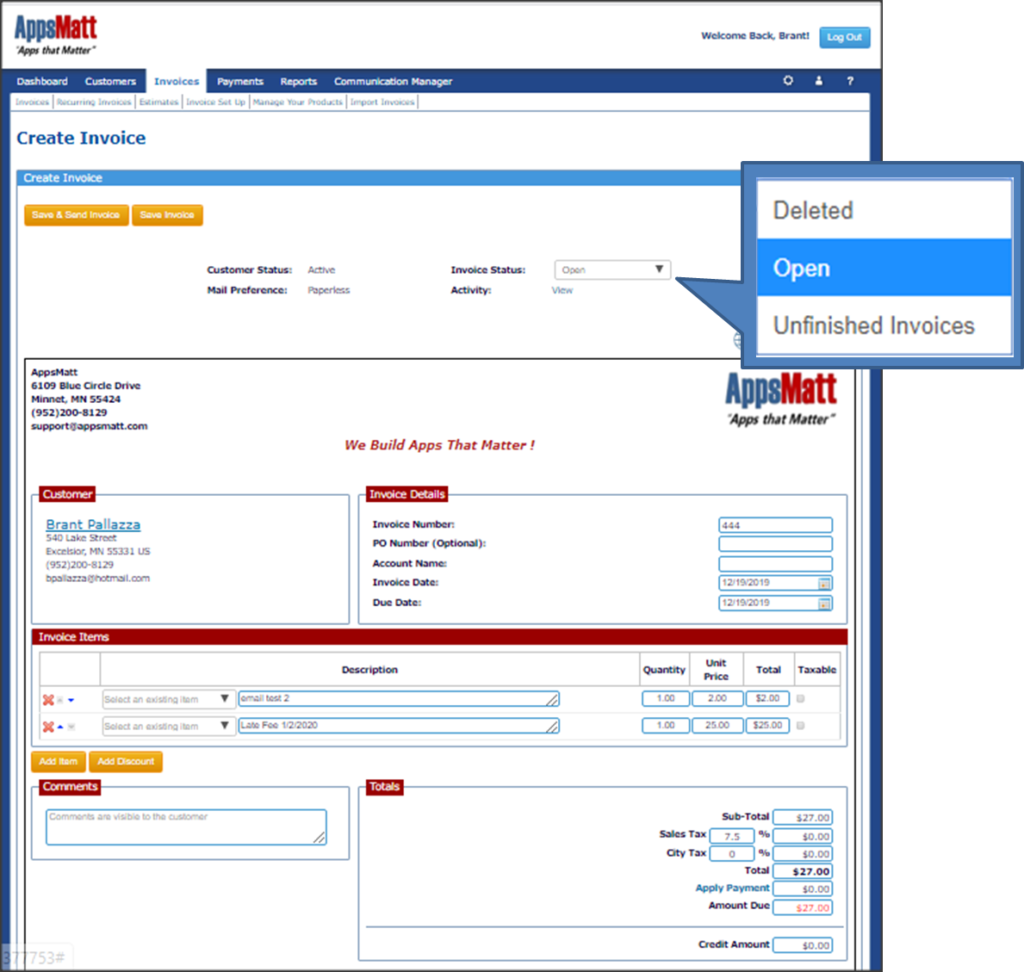
- #Officetime invoice status how to
- #Officetime invoice status update
- #Officetime invoice status license
- #Officetime invoice status download
The standard payment term is 30 days.ĭue Date is the date when the invoice payment is due. Payment Terms is the number of days from the invoice date when payment is due. You receive an invoice for each order every billing period.īilling Period is the period since the last invoice date. Every time you buy a new subscription, a new order with a new order number is created. Order Number is the globally unique identifier (GUID) that identifies your order. To change the PO number, see Change your purchase order number.
#Officetime invoice status update
If you update the PO number, it's included in future invoices. You can't add a PO number to an existing invoice. Page two lists the individual products in your order.Ĭustomer PO Number is the purchase order (PO) number that you specify. On page one of your invoice, the Product is "Online Services," the generic term we use to describe your subscription. To update your Bill-To or Service Usage Address, see Change your billing addresses. To update the Sold-To address, see Change your organization's address, technical contact, and more. Depending on the size and configuration of your organization, these addresses might be different. Service Usage Address is the address where the service is used. The Bill-To address is the address of your billing department. The Sold-To address is the name and address of the organization that bought the subscription.

Three addresses appear at the top of the first page.
#Officetime invoice status how to
Page one of your invoice contains address information for your organization, high-level details about your order, a summary of invoice totals, and instructions about how to pay your invoice. Based on your country or region, it might include other information like the phone number to call for billing or technical support, a link to online self-help articles, and the address and tax ID for Microsoft in your country or region. The footer appears at the bottom of every invoice page and includes Microsoft business center address.

If you pay for your subscription with a credit card or bank account, we charge your card or account the day after the invoice date. If you pay by Electronic Funds Transfer (EFT) or check, include the invoice number with your payment.įinally, the header includes the Due Date for payment of the invoice, and shows the total amount due. The header also includes an Invoice Number, the unique number assigned to your invoice. For example, if your billing period is January 15-February 14, your invoice date is February 15. The invoice is created the day after the end of your billing period. The header appears at the top of every invoice page, and includes the month of service, and the Invoice Date, which is the date Microsoft created the invoice. Page two contains details about the billing activity for each subscription during the service period. Page one is the billing summary, and contains general information about the invoice, order, amount due, and payment instructions, if applicable.
#Officetime invoice status license


#Officetime invoice status download
The service period is the date range during which you're charged to use the service.Īt the end of each billing period, you receive an email that says your new invoice is ready to view or download in the Microsoft 365 admin center. Starting on page two of the invoice, you see the charges grouped by their Service Period. If you made a change to your subscription outside of this date range, like adding or removing licenses, the associated charges appear on the invoice for the next billing period. This time represents the date range during which charges accrue for the current invoice. The amount of time since the last invoice date is called the Billing Period and is on page one of the invoice. Depending on the billing frequency you chose when you bought your subscription, you receive an invoice either monthly or annually.


 0 kommentar(er)
0 kommentar(er)
